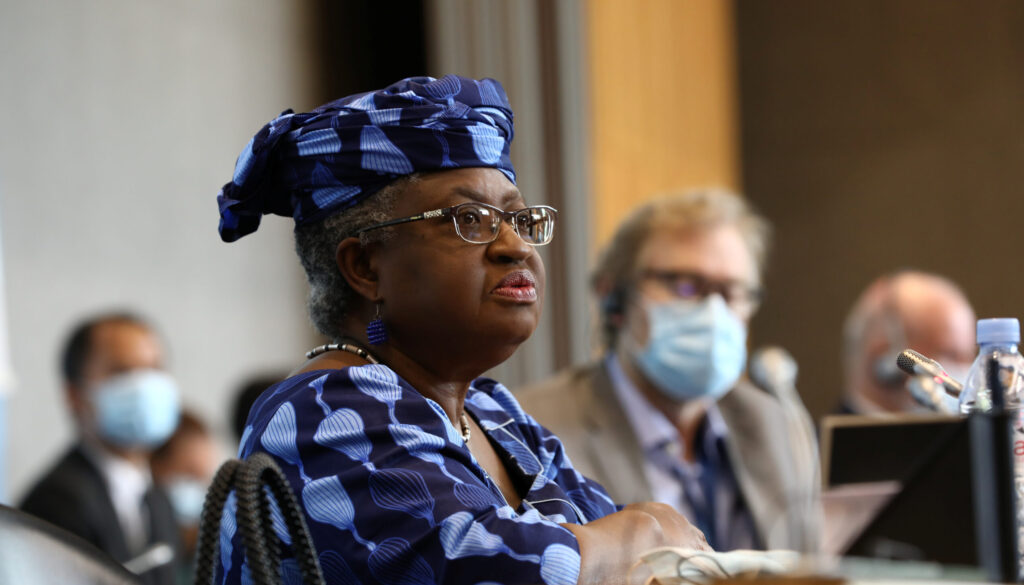The Director General of the World Trade Organisation (WTO), Dr, Ngozi Okonjo-Iweala, has reiterated that a rapid global and equitable vaccine roll-out would be the best stimulus for a strong and sustained economic recovery for the global economy.
Okonjo-Iweala acknowledged that large monetary and fiscal injections in advanced economies helped prevent a bigger economic downturn last year and served as a major factor in why growth and trade have both outperformed projections from last year.
She, however, stated that these support measures would not, “be enough to bring an end to the crisis. Only by ramping up production of vaccines and making them more widely available can we hope to get the world economy back to full speed.”
She also emphasised that stakeholders should pay adequate attention to effective vaccine roll-out because COVID-19 has continued to pose the greatest threat to the global outlook for trade.
“The rapid development of effective vaccines has given the world a realistic chance of stopping this disease in its tracks and jump-starting the world economy at the same time, but this opportunity could be squandered if large numbers of countries and people do not have equal access to vaccines.
“Ramping up the production and deployment of vaccines in all countries will allow businesses and schools to reopen more quickly and help economies get back on their feet.
“Depending on how quickly we can bring the pandemic to an end, trade could either see a major resurgence over the next two years, or it could experience a weaker, more prolonged recovery,” Okonjo-Iweala said.
The director general also said accelerated vaccinations would allow containment measures to be relaxed sooner, which could raise trade growth up to 2.5 percentage points above the baseline forecast in 2021 and hopefully returning trade to the pre-pandemic trend.
But on the other hand, “if supply shortages continue, or if vaccine-resistant strains of the virus emerge, trade growth could end up two percentage points below the baseline forecast.
“Overall, we believe that the balance of risks to the forecast is considered to be on the downside, but upside potential exists if countries make wise policy choices,” the director general of the WTO said.
Okonjo-Iweala warned that the possibility that many countries would be left behind as the world emerge from the COVID-19 crisis would be a major source of concern because despite the broad-based nature of the global economic recovery to date, there are signs of divergence in trade flows across regions.
She disclosed that the volume of world merchandise trade contracted by 5.3 per cent in 2020. But this contraction was smaller than initially feared.
She stated that following a sharp decline in the first half of the year, “trade recovered more quickly than expected in the second half of 2020. This rebound has continued, and the WTO’s baseline trade forecast foresees an eight per cent increase in the volume of world merchandise trade for 2021.
“Trade growth is expected to slow to four per cent in 2022. It’s important to note that this would still leave trade below its pre-pandemic trend.”
Okonjo-Iweala observed that exports from Asia at the end of 2021 would be 10 per cent higher than they were in 2019, while most other regions would see smaller increases or modest declines if the current WTO’s forecast is realised.

